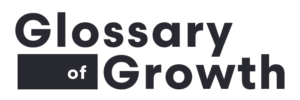An editorial calendar is a tool used by content creators, marketers, publishers, and other professionals to plan, organize and track content creation or publication. It is essentially a document or chart that lists out the topics, ideas and types of content that will be created or published in the future. This includes blog posts, articles, video scripts, podcasts and more. The editorial calendar can also include the dates when these pieces of content should be created or published.
Compared to its similar counterpart – the project plan – an editorial calendar has its own unique purpose. While project plans serve as a comprehensive list of tasks and resources necessary for completing a certain task or project within a certain timeline – such as launching a new product/service – an editorial calendar’s goal is more focused on tracking and organizing various pieces of content related to a particular topic (or topics). This could include tracking what topics have already been covered in previous pieces of content and which topics need to be covered in upcoming pieces of content.
In addition to tracking specific topics for upcoming pieces of content, an editorial calendar can also track who is responsible for creating each piece of content (such as different authors), as well as where each piece should be published (for example on various websites/blogs). Furthermore, an editorial calendar can help identify gaps in coverage, allowing users to fill any holes with new ideas or pieces ofcontent relevant to those topics. This ensures consistent messaging across all channels while also avoiding overlap in coverage with other sources.
Editorial calendars are invaluable tools for anyone involved in creating or publishing any type of online or offline content. They allow users to outline their goals ahead of time while simultaneously helping them stay organized throughout their entire process – from brainstorming ideas through publishing finished material. With clear objectives listed out in detail on an editorial calendar, it becomes much easier for teams to stay on schedule without getting sidetracked with irrelevant tasks or off-topic projects.

